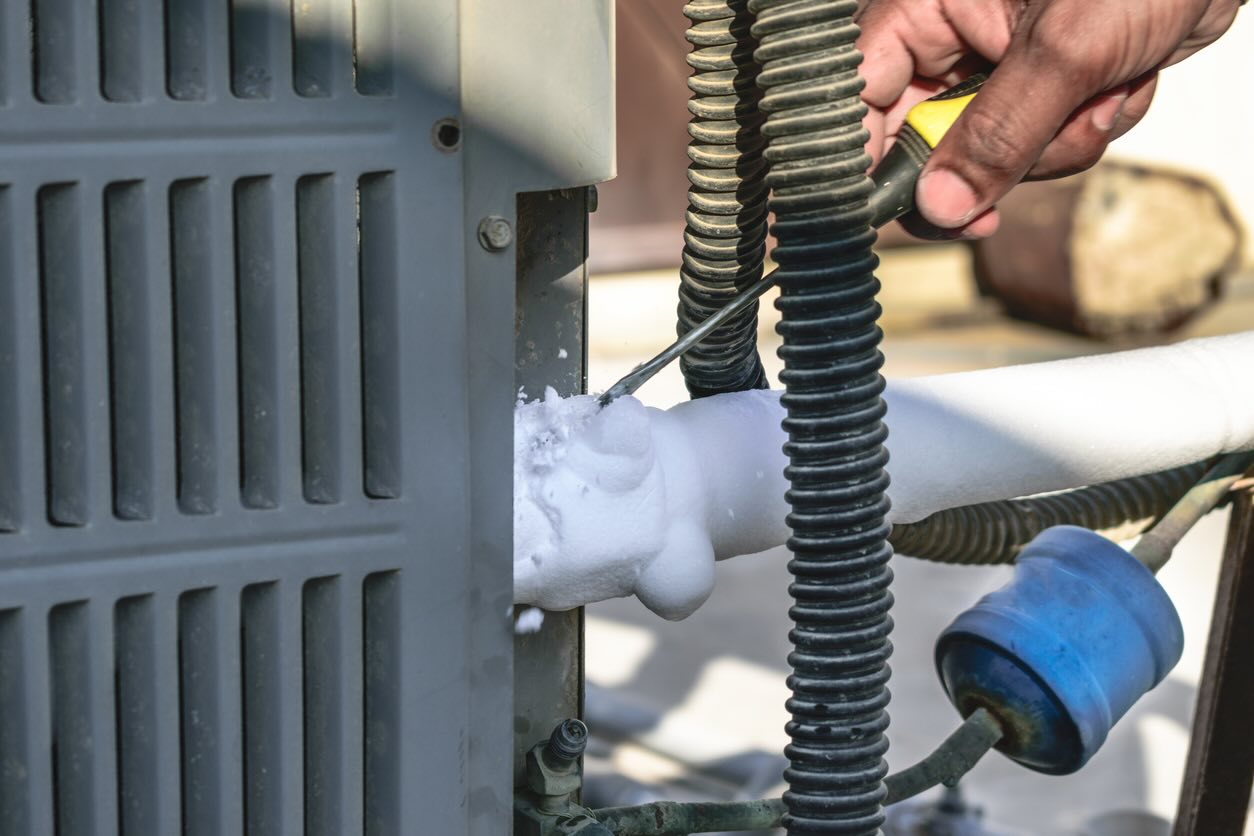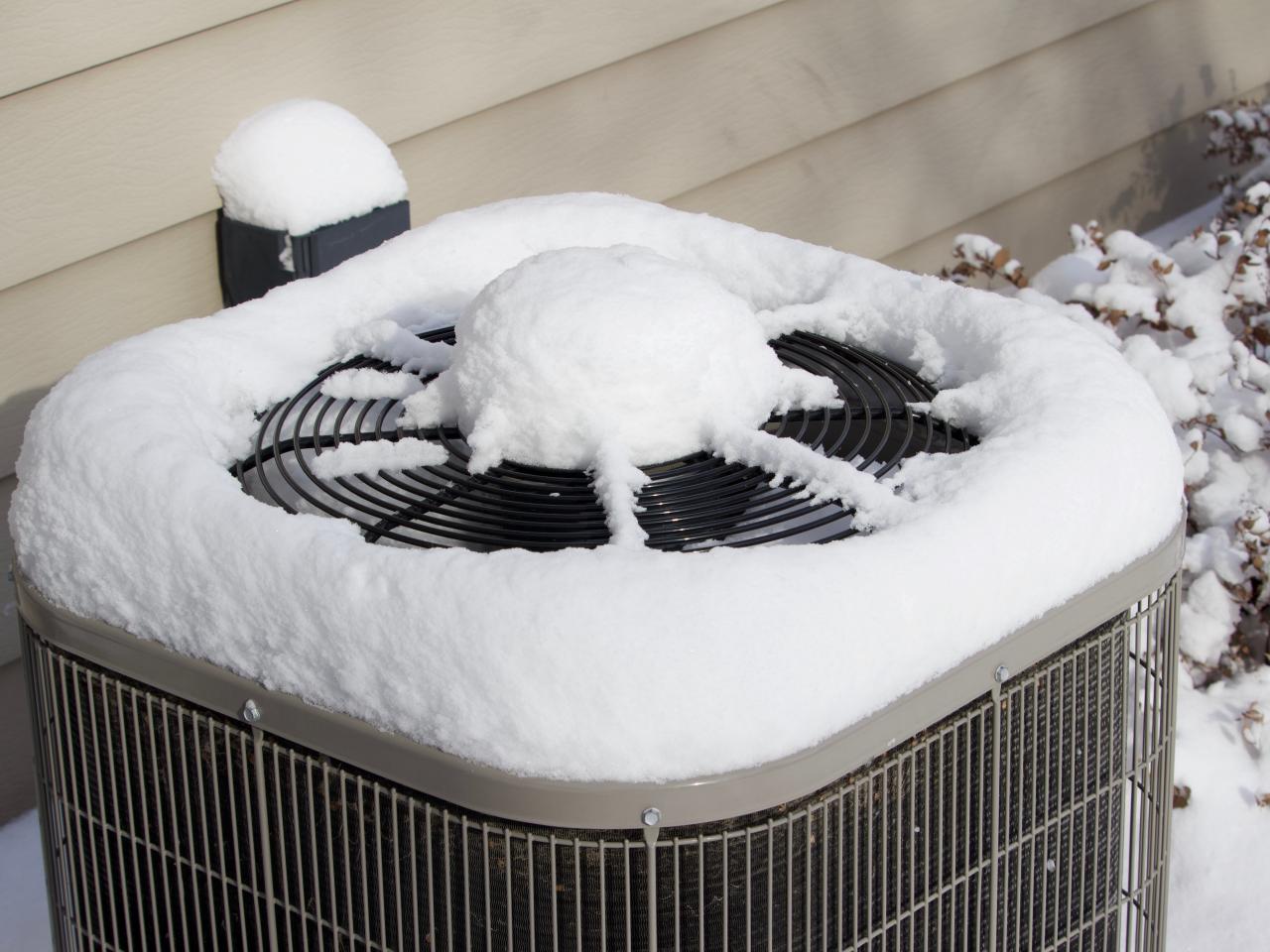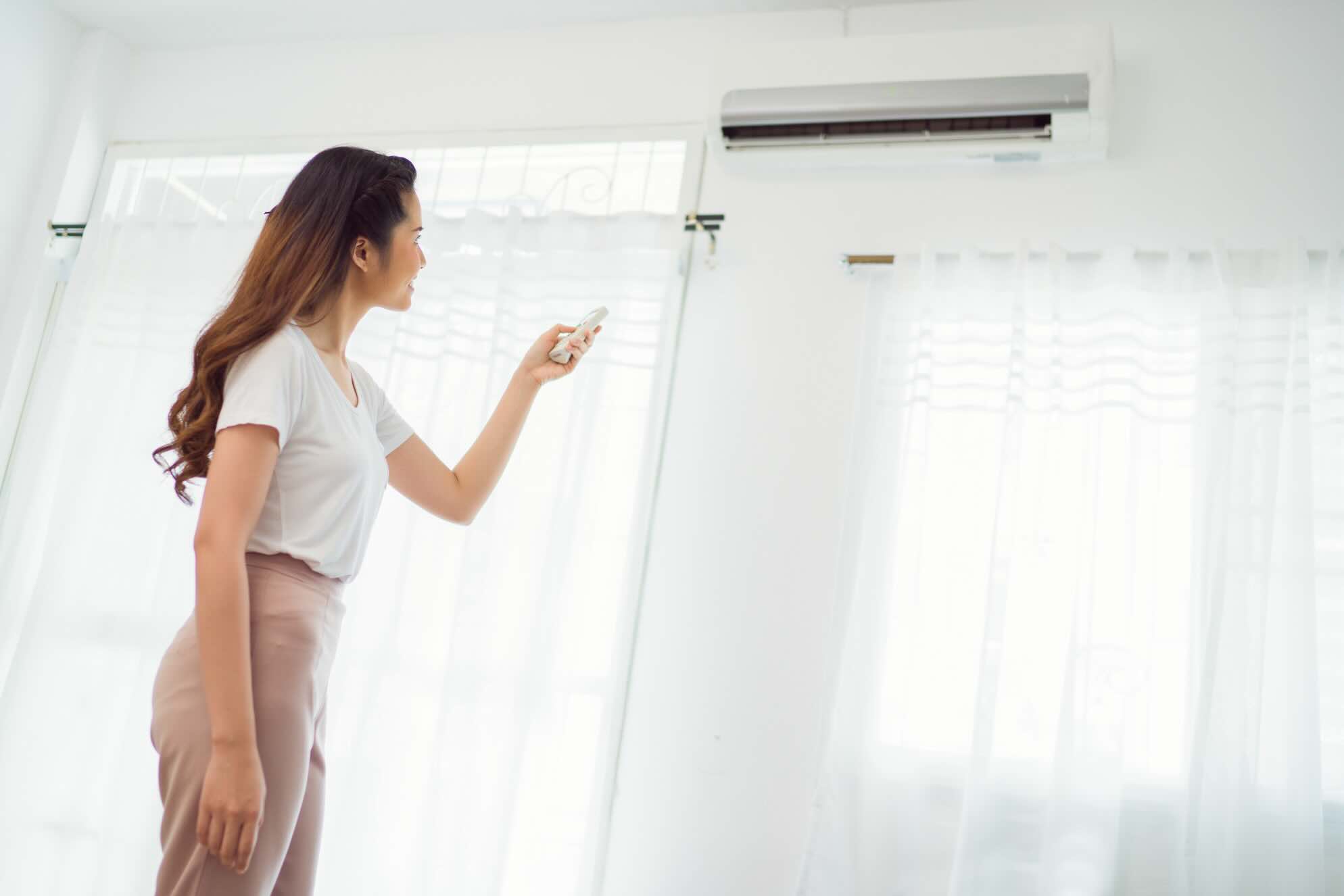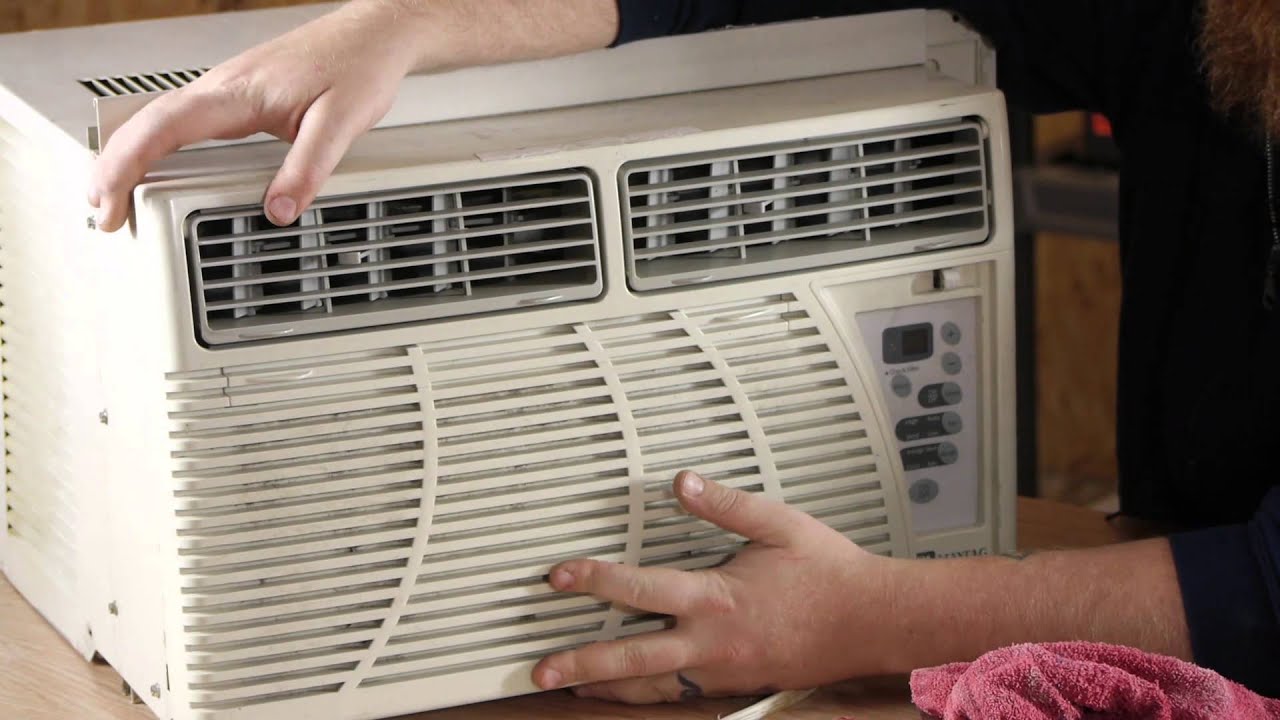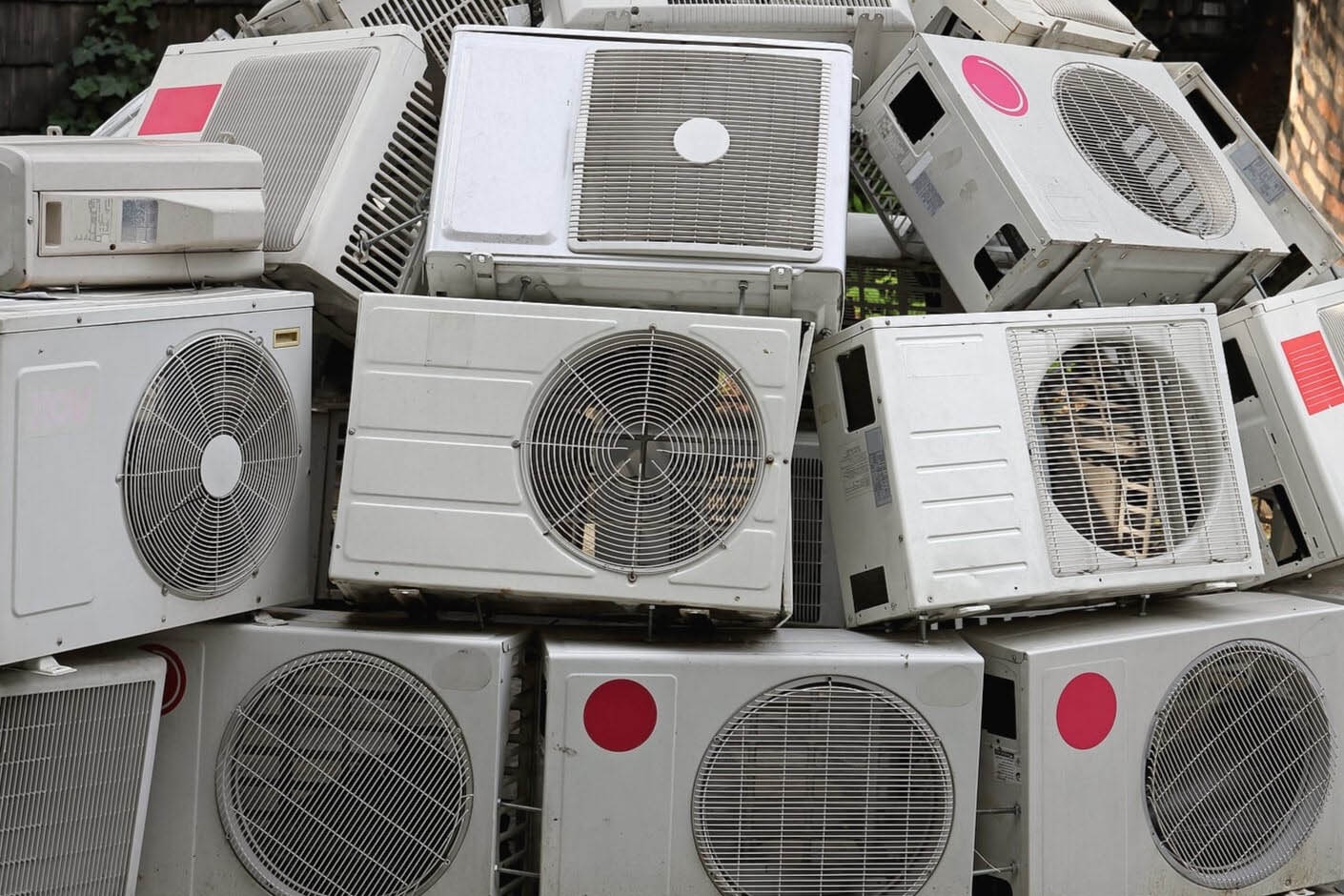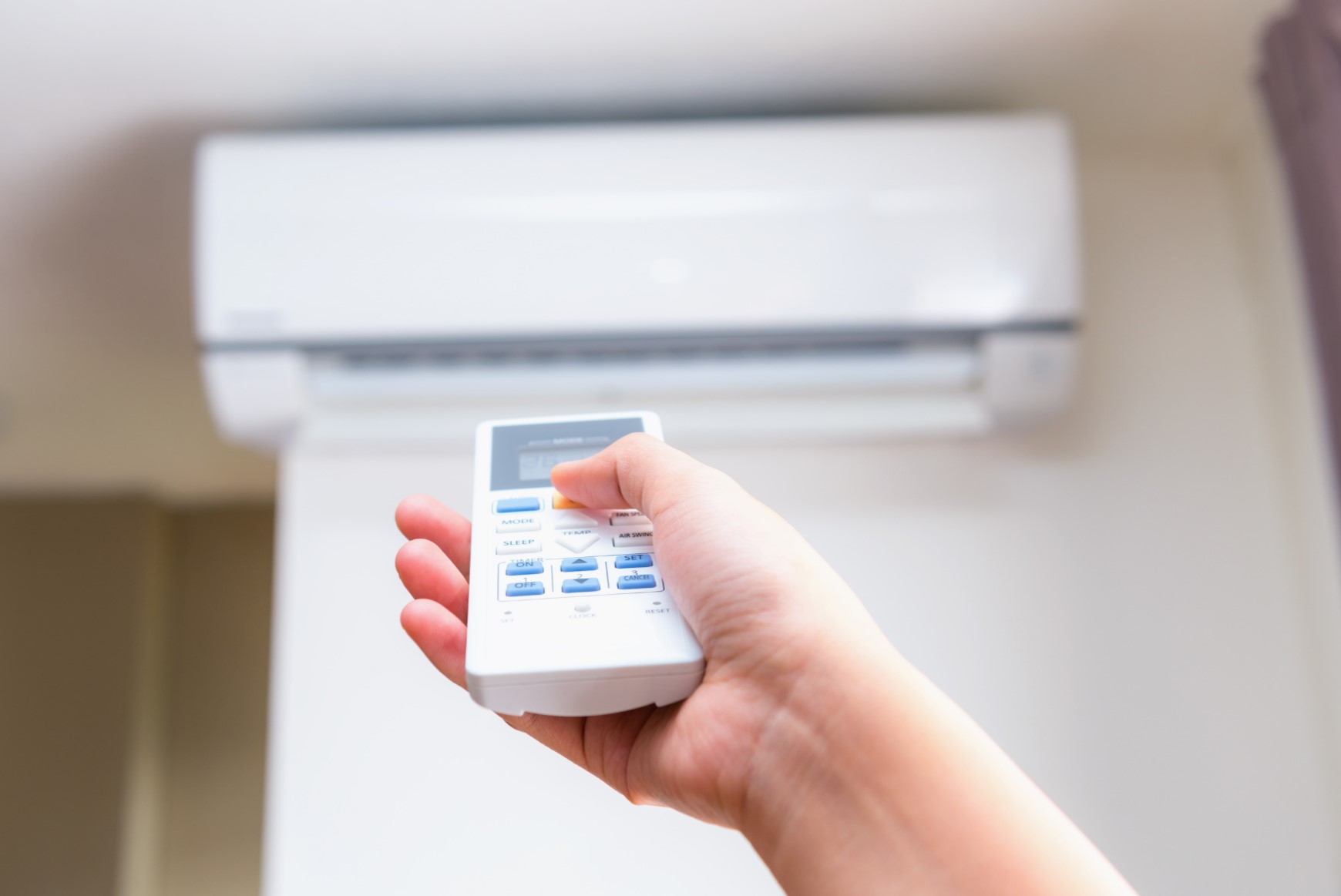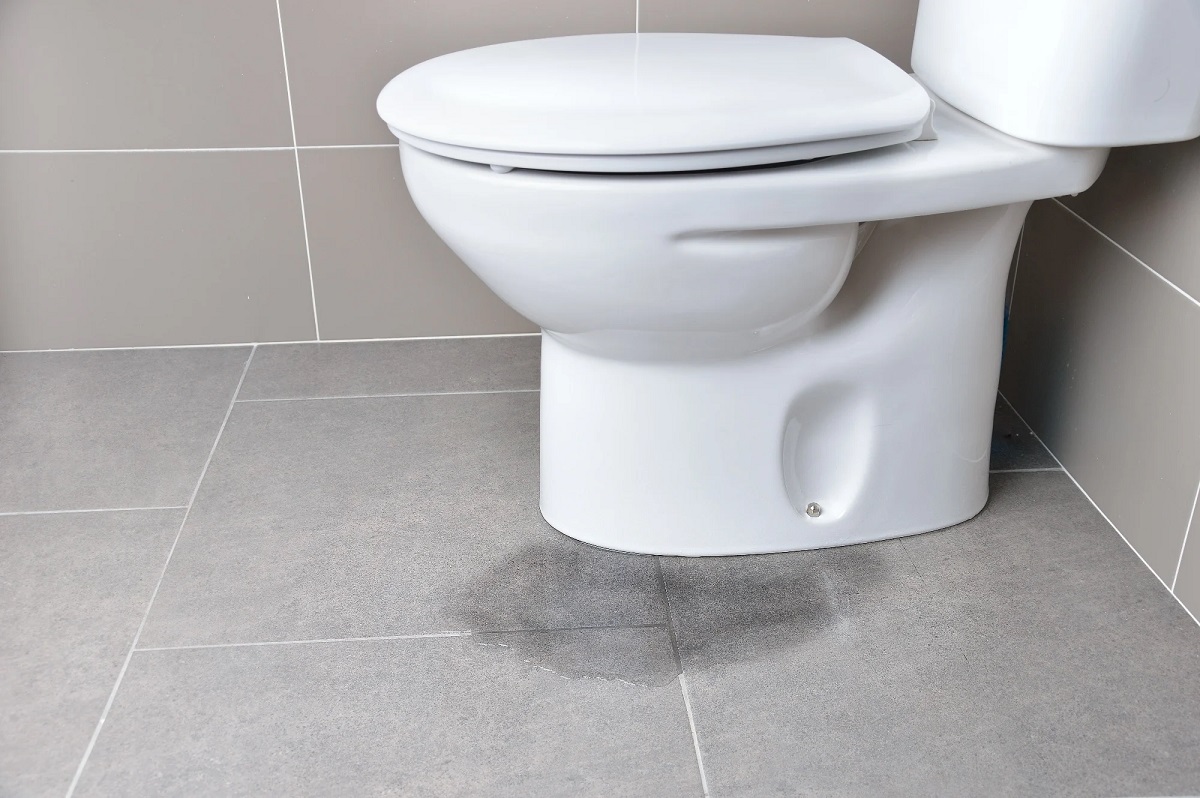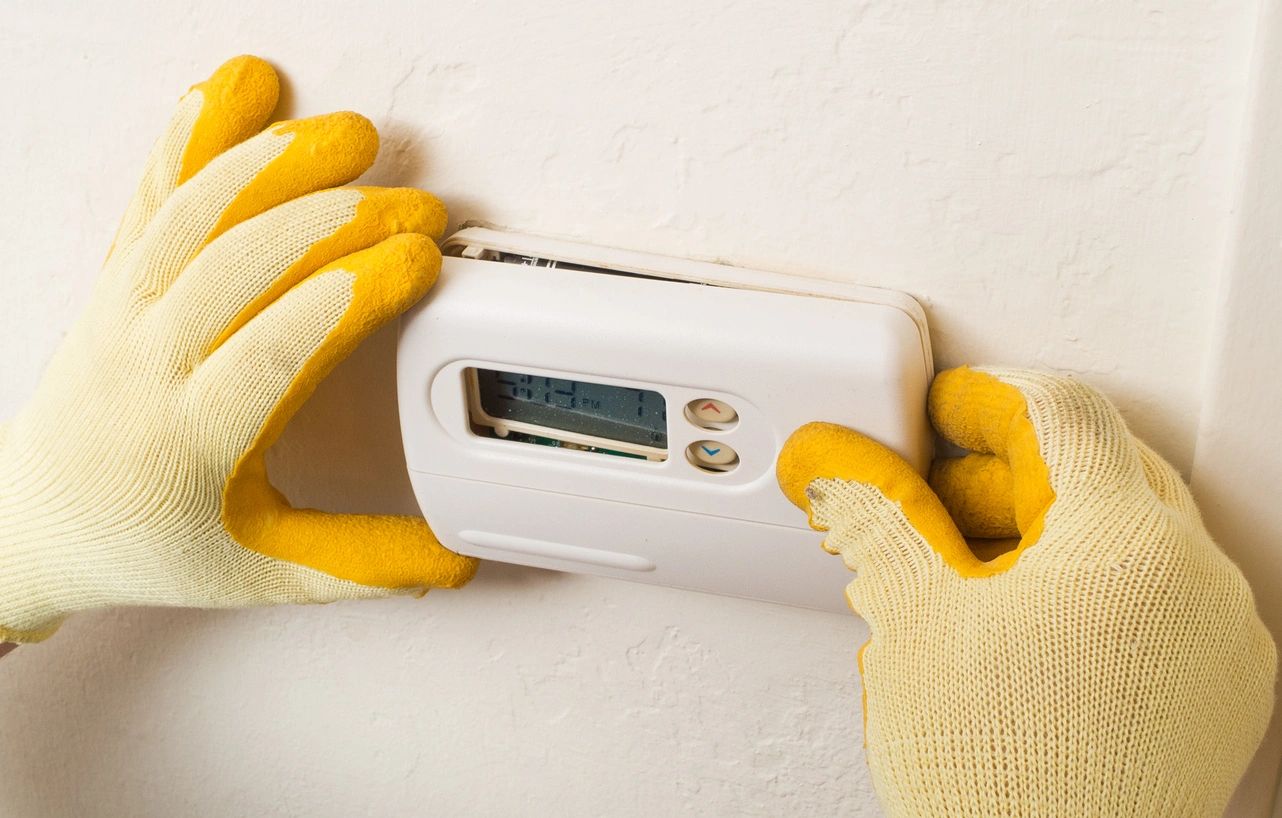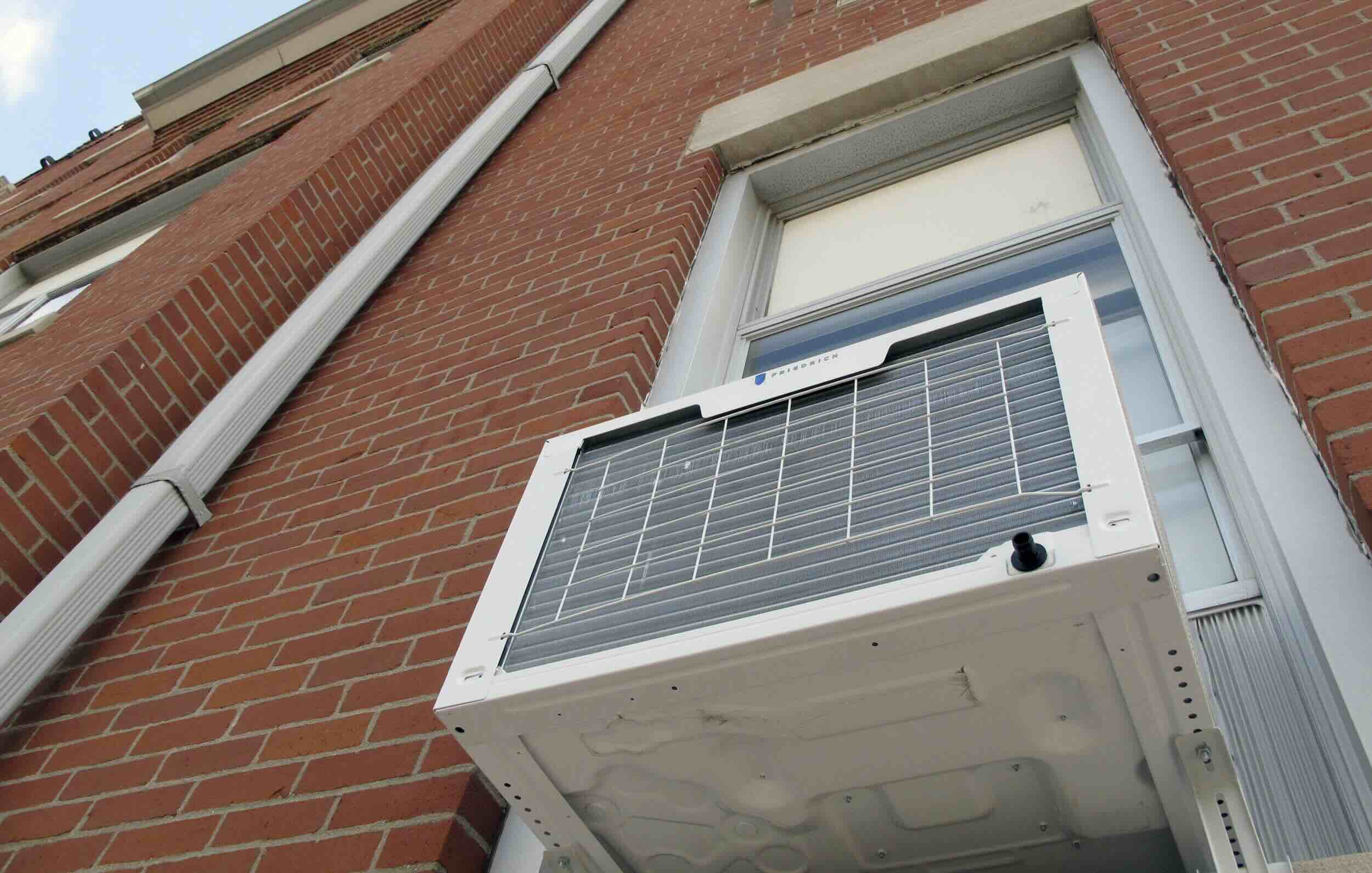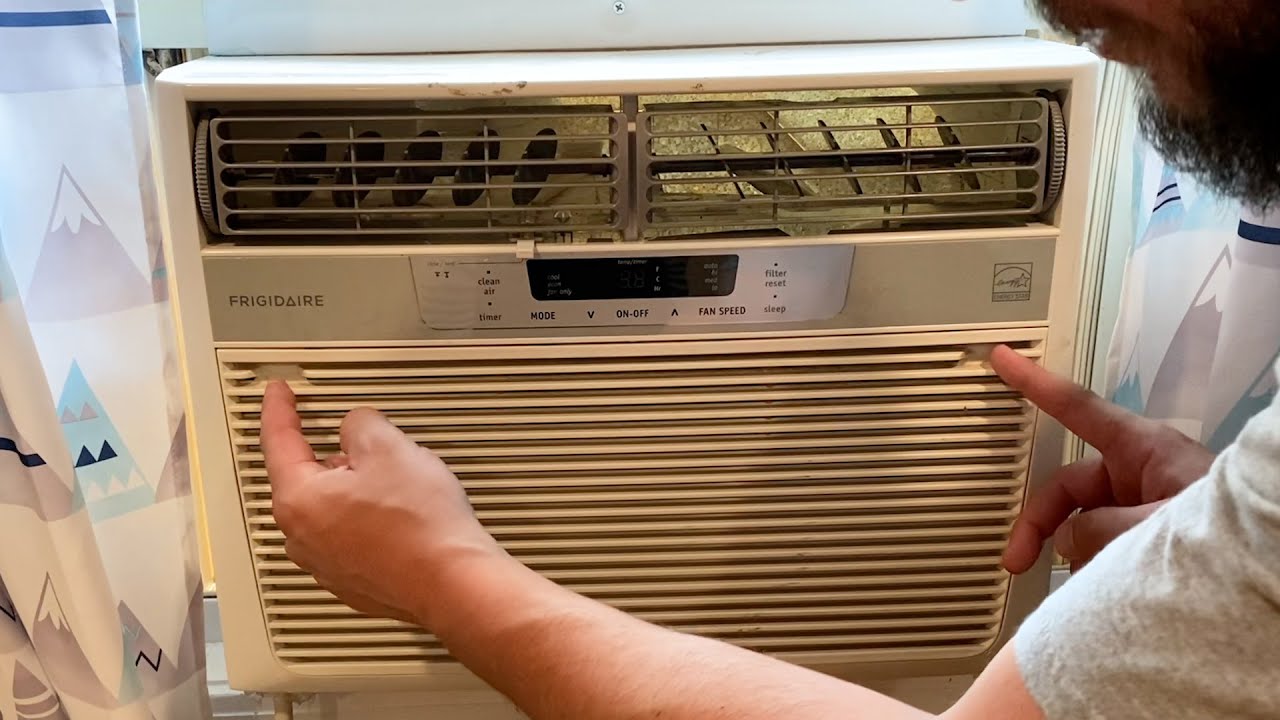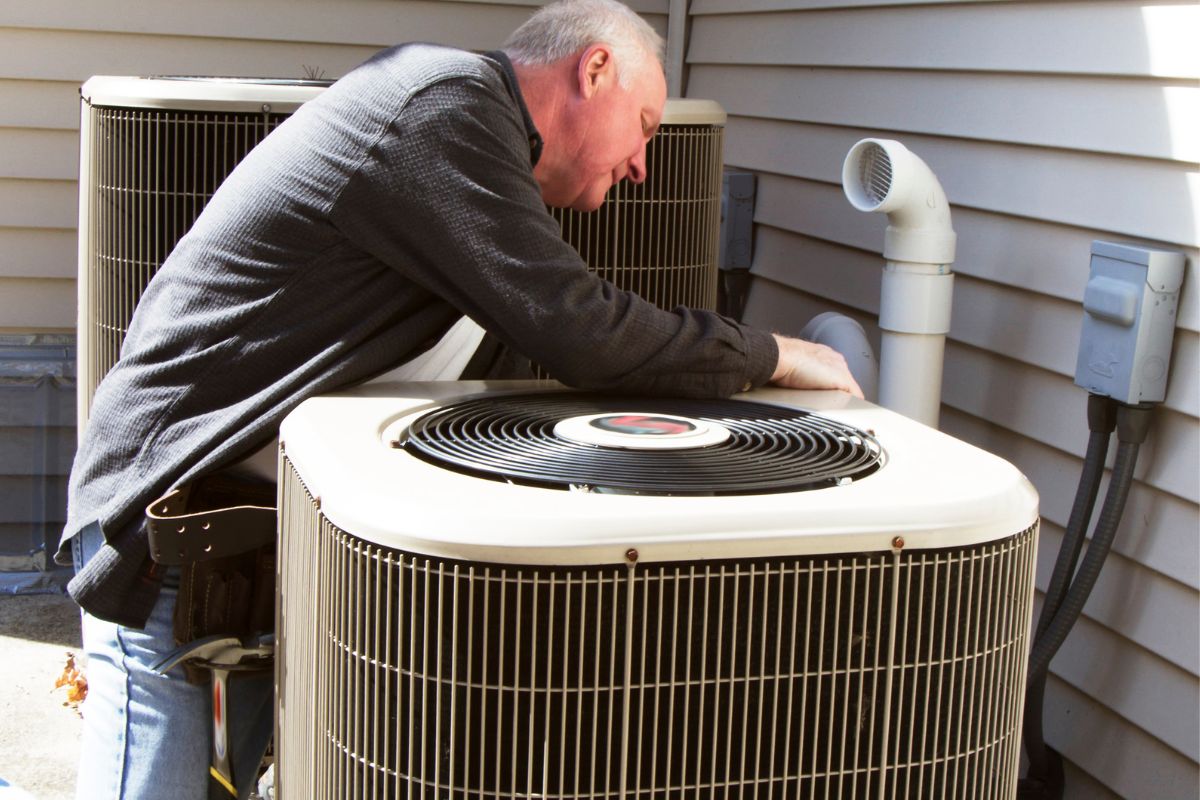Home>Home Maintenance>How To Tell If An Air Conditioner Is Broken
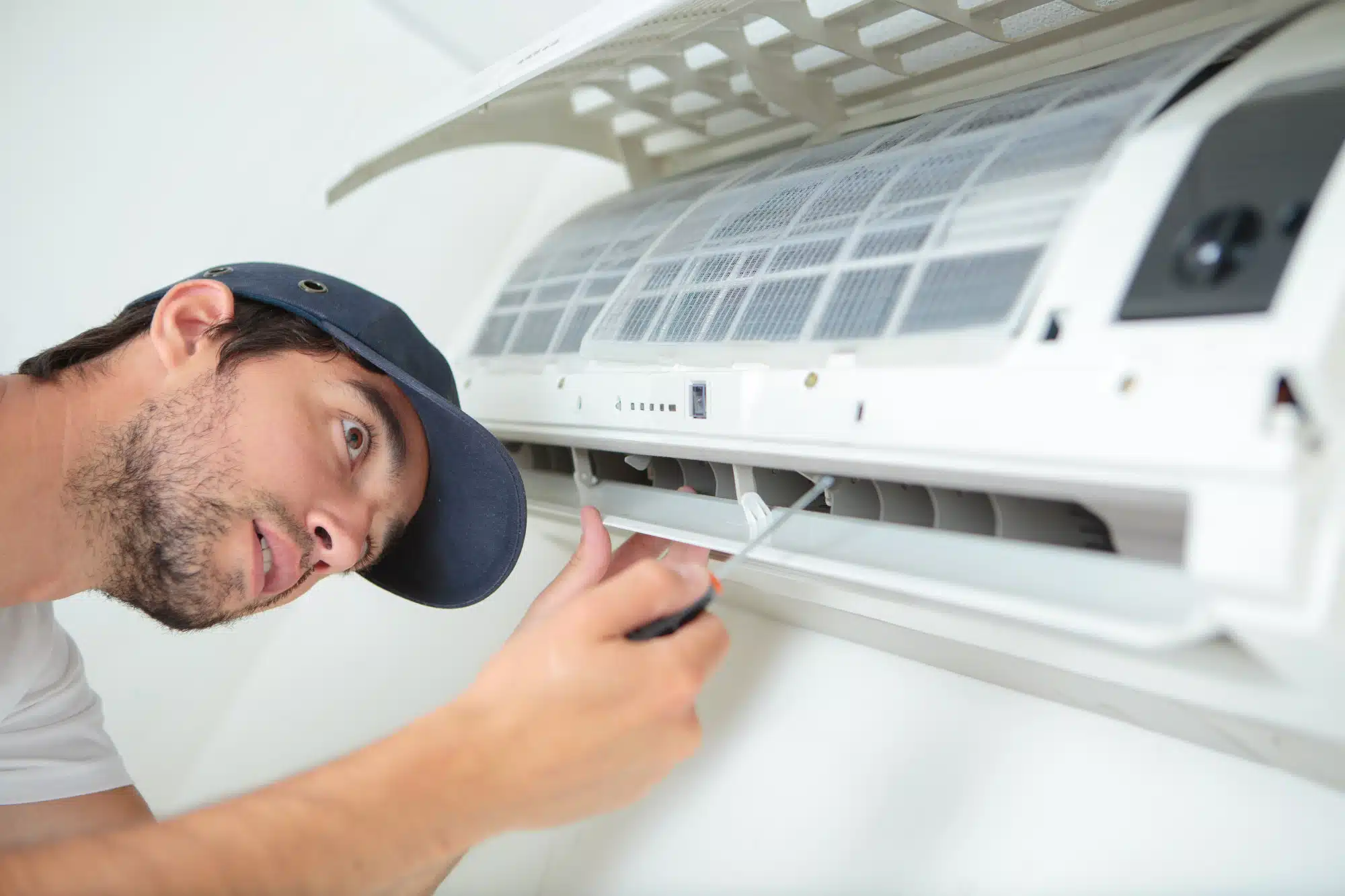

Home Maintenance
How To Tell If An Air Conditioner Is Broken
Modified: March 7, 2024
Learn how to determine if your air conditioner is broken with this helpful guide on home maintenance. Keep your home comfortable and cool all summer long.
(Many of the links in this article redirect to a specific reviewed product. Your purchase of these products through affiliate links helps to generate commission for Storables.com, at no extra cost. Learn more)
Introduction
An air conditioner is a vital appliance in any home, providing cool and comfortable air during hot summer months. However, like any other mechanical device, air conditioners can experience issues and break down over time. Recognizing the signs of a broken air conditioner is crucial to prevent further damage and maintain a comfortable living environment.
In this article, we will discuss the common signs of a broken air conditioner and provide troubleshooting tips to help you identify and fix these issues. By understanding these indicators and taking appropriate action, you can save time and money on costly repairs or even the replacement of your air conditioning unit.
Let’s dive in and explore the key signs of a broken air conditioner, so you can stay cool and comfortable all summer long.
Key Takeaways:
- Keep your air conditioner in top shape by recognizing signs of trouble, such as strange noises, weak airflow, and odd odors. Regular maintenance and professional inspections can save you from costly repairs and ensure a cool, comfortable home.
- Don’t ignore unusual sounds, reduced airflow, or higher energy bills from your air conditioner. Simple tasks like cleaning air filters and scheduling professional maintenance can keep your system running efficiently and save you money in the long run.
Read more: How To Tell If AC Is Broken
Signs of a Broken Air Conditioner
An air conditioner that is functioning properly should effectively cool your home, provide consistent airflow, and operate quietly. However, when it is broken, several signs may indicate that your system requires attention.
Here are some common signs that your air conditioner may be broken:
- Noisy Operation: Unusual or loud noises coming from your air conditioner can indicate a problem. Clanking, grinding, or squealing sounds may suggest issues with the internal components of the unit or the fan motor.
- Weak Airflow: If you notice a decrease in the airflow coming from your air vents, it may suggest a problem with the fan or a clogged air filter. Restricted airflow can result in reduced cooling efficiency and uncomfortable indoor temperatures.
- Uneven Cooling: An air conditioner that fails to cool your home evenly can indicate a problem. If certain rooms or areas in your home remain hot while others are adequately cooled, it may be a sign of a malfunctioning compressor or leaky ductwork.
- Frequent Cycling: A properly functioning air conditioner should cycle on and off periodically to maintain the desired temperature. However, if your unit is constantly turning on and off in short intervals, it may indicate issues with the thermostat, refrigerant levels, or a faulty sensor.
- Strange Odors: Unpleasant odors coming from your air conditioning vents can be indicative of mold or mildew growth. Musty smells may suggest excess moisture in the system, while burning or electrical odors can be a sign of a more serious issue.
- Increased Energy Bills: If you notice a sudden spike in your energy bills without any significant changes in your usage patterns, it may be a sign of a malfunctioning air conditioner. Inefficient operation or mechanical problems can cause your unit to work harder and consume more energy.
It’s important to pay attention to these signs and take prompt action if you suspect that your air conditioner is broken. Addressing these issues early can prevent further damage and ensure the longevity of your cooling system.
Noisy Operation
An air conditioner that is operating correctly should generally run quietly, with minimal noise. However, if you notice unusual or loud noises coming from your air conditioning unit, it may be a sign of a problem.
Here are a few common noises that may indicate a broken air conditioner:
- Clanking or Banging Sounds: If you hear clanking or banging noises coming from your air conditioner, it could indicate loose or broken parts within the unit. These could include loose fan blades, faulty motor mounts, or a dislodged compressor. It’s essential to address these issues promptly to prevent further damage to your system.
- Grinding Noise: A grinding noise may suggest that the fan motor or the compressor is malfunctioning. The grinding sound could be caused by worn-out bearings or other internal components. If left unattended, it can lead to further damage and an eventual breakdown of the unit.
- Squealing or Screeching Sounds: Squealing or screeching noises are often associated with problems in the fan belt or motor. If the belt is loose, worn out, or misaligned, it can produce these high-pitched sounds. Ignoring this issue can cause the belt to break, leading to a complete shutdown of the air conditioner.
- Hissing or Whistling Sounds: Hissing or whistling sounds may indicate a refrigerant leak in your air conditioning system. A leak can lead to insufficient cooling and a decline in performance. If you suspect a refrigerant leak, it’s crucial to contact a professional HVAC technician to inspect and repair the leak properly.
If you notice any of these noises coming from your air conditioner, it is advisable to turn off the unit and contact a qualified HVAC technician to diagnose and repair the problem. Attempting to fix the issue yourself may worsen the situation or even cause harm to yourself or the air conditioning unit.
Remember, addressing the noisy operation of your air conditioner as soon as possible can prevent further damage and ensure the efficient and quiet operation of your cooling system.
Weak Airflow
Strong and consistent airflow is a crucial aspect of an efficiently functioning air conditioner. If you notice a decrease in the airflow coming from your air vents, it may indicate a problem with your cooling system.
Here are some common reasons why you may experience weak airflow:
- Clogged Air Filters: One of the most common causes of weak airflow is dirty or clogged air filters. Over time, dust, dirt, and debris can accumulate in the filters, restricting the flow of air. This restricts the cooling capacity of the system and reduces the airflow into your home. Regularly cleaning or replacing your air filters can help improve airflow and maintain optimal performance.
- Faulty Fan Motor: The fan motor is responsible for circulating the air throughout your home’s ductwork. If the fan motor is malfunctioning or not working at its full capacity, it can lead to weak airflow. A professional HVAC technician can examine and repair the fan motor as needed.
- Ductwork Issues: Leaky or poorly insulated ductwork can contribute to reduced airflow. If there are gaps or leaks in the air ducts, the cool air from the air conditioner can escape before reaching its intended destination. Additionally, if the ducts are poorly insulated, the cooled air can heat up as it travels through the ductwork, resulting in less effective cooling. Sealing and insulating the ductwork can help improve airflow and enhance the overall efficiency of your air conditioning system.
- Blocked or Closed Vents: Ensure that all vents in your home are open and free from obstructions. Closed or blocked vents can restrict airflow and result in weak cooling performance. Check each vent and remove any objects or debris that may be obstructing the airflow.
If you are experiencing weak airflow from your air conditioning system, it is recommended to check and address these common issues. Cleaning or replacing air filters, repairing the fan motor, sealing ductwork, and ensuring open vents can help restore proper airflow and enhance the effectiveness of your cooling system.
However, if these troubleshooting steps do not rectify the problem, it is advisable to seek assistance from a professional HVAC technician. They can diagnose and resolve any underlying issues with your air conditioning system to restore optimal airflow and ensure your home stays cool and comfortable.
Uneven Cooling
When it comes to your air conditioner, achieving even cooling throughout your home is essential for comfort. If you notice that certain areas or rooms in your home are not adequately cooled while others are too cold, it may indicate an issue with your cooling system.
Here are some common reasons why you may experience uneven cooling:
- Malfunctioning Compressor: The compressor is responsible for circulating refrigerant and transferring heat from the indoor air to the outdoor unit. If the compressor is not functioning correctly, it can result in inconsistent cooling. This can lead to warm spots in certain areas of your home while others remain cool.
- Leaky Ductwork: Leaks in your home’s ductwork can cause cooled air to escape before reaching its intended destination. As a result, certain areas of your home may not receive sufficient airflow, leading to uneven cooling. Sealing and insulating the ductwork can help minimize air leaks and ensure that cooled air reaches every room in your house consistently.
- Improperly Sized Unit: If your air conditioner is not properly sized for your home, it may struggle to cool the entire space evenly. An undersized unit may not have enough cooling capacity to adequately cool your home, while an oversized unit may cycle on and off too frequently, resulting in uneven temperatures. Consulting with a professional HVAC technician can help determine the appropriate size and capacity of the unit for your home.
- Blocked Vents or Registers: Ensure that all vents and registers in your home are open and free from obstructions. Furniture, curtains, or other objects placed in front of vents can restrict airflow and prevent proper cooling in certain areas. Remove any obstructions to allow for better airflow and more even cooling throughout your home.
If you are experiencing uneven cooling in your home, it’s important to address the underlying issues to ensure a comfortable indoor environment. Taking proactive measures such as maintaining your system, sealing ductwork, and addressing any sizing or ventilation problems can help improve the overall performance and achieve consistent cooling throughout your home.
If these troubleshooting steps do not resolve the issue, it is recommended to consult with a professional HVAC technician. They can assess your cooling system, identify any underlying problems, and provide the necessary repairs or adjustments to restore even cooling and maintain your comfort.
Frequent Cycling
Frequent cycling or short cycling refers to when your air conditioner turns on and off too frequently, often in rapid succession. This can be a sign that your cooling system is not operating optimally and may require attention.
Here are some common reasons why your air conditioner may be frequently cycling:
- Thermostat Issues: The thermostat plays a crucial role in regulating the temperature in your home. If the thermostat is not calibrated correctly or is faulty, it can cause your air conditioner to cycle more frequently than necessary. Consider checking the thermostat settings and ensuring it is properly calibrated. If the problem persists, it may be time to replace the thermostat.
- Low Refrigerant Levels: Insufficient refrigerant levels can lead to inadequate cooling and cause your air conditioner to work harder to maintain the desired temperature. Low refrigerant levels could result from a leak in the system. A professional HVAC technician can inspect and fix any refrigerant leaks and recharge the system with the correct amount of refrigerant.
- Faulty Sensor: The sensor in your air conditioner measures the indoor temperature and signals the unit to turn on or off accordingly. If the sensor is malfunctioning or is not in the correct position, it may cause the air conditioner to cycle erratically. A technician can recalibrate or relocate the sensor to ensure accurate temperature readings and proper functioning of the unit.
- Dirty Condenser Coils: Over time, dirt, dust, and debris can accumulate on the condenser coils, hindering proper heat transfer and causing the system to overheat. When the air conditioner overheats, it may cycle on and off frequently as a protective measure. Regular maintenance, including cleaning the condenser coils, can help prevent this issue and improve the overall efficiency of the system.
If you notice that your air conditioner is frequently cycling, it’s important to address the issue to prevent unnecessary wear and tear on the system and to ensure efficient cooling in your home. While you can perform some basic troubleshooting, such as checking the thermostat settings and cleaning the condenser coils, it is recommended to consult with a professional HVAC technician for a thorough inspection and to diagnose any underlying problems.
A qualified technician will have the necessary expertise and tools to identify and resolve the issue causing the frequent cycling. By addressing the problem promptly, you can improve the efficiency of your air conditioning system, prolong its lifespan, and maintain a comfortable indoor environment.
Strange Odors
Strange odors coming from your air conditioner can be unpleasant and may indicate underlying issues that require attention. If you notice any abnormal smells emanating from your cooling system, it’s important to investigate and address the problem.
Here are some common odors you may encounter and their possible causes:
- Musty Odors: Musty or mildew-like smells are typically caused by excessive moisture accumulation within the air conditioner or ductwork. This moisture creates an ideal environment for mold and mildew growth. It’s crucial to address this issue promptly, as exposure to mold spores can have adverse health effects. A professional HVAC technician can help clean and disinfect the air conditioning system, remove mold and mildew, and resolve any drainage issues.
- Burning or Electrical Smells: A burning odor or the smell of overheated electrical components can indicate a serious problem with your air conditioner. It may suggest issues with wiring, motors, or other electrical components. If you detect this smell, it’s important to turn off your air conditioner immediately to prevent any potential fire hazard. Contact a professional technician to inspect and repair your system as soon as possible.
- Chemical or Ozone-like Odors: Pungent chemical or ozone-like odors can be a sign of a refrigerant leak. Refrigerant is a vital component that allows your air conditioner to cool the air. A refrigerant leak not only impacts the performance of your system but can also pose health risks. If you suspect a refrigerant leak, contact a professional HVAC technician to locate and repair the leak as well as recharge the system to ensure proper cooling efficiency.
- Musty, Decomposing Smells: If you have outdoor condenser coils located close to plants or vegetation, debris such as leaves or dead animals can get trapped in the system and decompose, resulting in foul odors. Cleaning the condenser coils and removing any debris can eliminate the smell and prevent potential damage to your air conditioner.
If you encounter any strange odors coming from your air conditioner, it’s important not to ignore them. Ignoring the odors may worsen the problem and can lead to further damage to your system. Promptly contacting a professional HVAC technician is recommended to diagnose and resolve the underlying issue causing the odor.
Remember, addressing strange odors not only eliminates unpleasant smells but also ensures the efficiency and safety of your air conditioning system for long-term use.
Increased Energy Bills
If you notice a sudden spike in your energy bills without any significant changes in your usage patterns, it may be a sign of a broken air conditioner. Inefficient operation or mechanical problems can cause your unit to work harder and consume more energy, resulting in increased energy bills.
Here are some factors that can contribute to higher energy bills from a malfunctioning air conditioner:
- Poor Energy Efficiency: If your air conditioner is not operating efficiently, it may consume more energy to cool your home. Issues such as dirty air filters, clogged condenser coils, or a malfunctioning fan motor can decrease the efficiency of your system. Regular maintenance, including cleaning or replacing air filters, and professional tune-ups can help improve energy efficiency and lower your bills.
- Refrigerant Leaks: Low refrigerant levels due to leaks can cause your air conditioner to run for longer periods, leading to increased energy consumption. If you suspect a refrigerant leak, it’s important to have it repaired by a professional HVAC technician to restore proper cooling performance and reduce energy usage.
- Thermostat Issues: A malfunctioning or improperly calibrated thermostat can cause your air conditioner to run longer than necessary, resulting in higher energy bills. Make sure your thermostat is set correctly and consider upgrading to a programmable thermostat, which can help optimize cooling settings and save energy.
- Old or Inefficient System: If your air conditioner is old or not energy-efficient, it may consume more energy to cool your home compared to newer, more efficient models. Upgrading to a newer, energy-efficient unit can significantly reduce your energy bills and provide better cooling performance.
If you suspect that your increased energy bills are due to a broken air conditioner, it’s important to take action. Start by conducting basic maintenance tasks such as cleaning or replacing air filters and ensuring proper airflow. However, for more complex issues or if the problem persists, it is advisable to contact a professional HVAC technician.
An experienced technician can assess the condition of your air conditioning system, identify any underlying problems, and provide appropriate repairs or recommendations. By addressing the root cause of the increased energy bills, you can improve the efficiency of your air conditioner, reduce energy consumption, and ultimately lower your monthly utility costs.
Check for signs such as warm air coming from the vents, strange noises, or a noticeable decrease in cooling power. If you notice any of these, it’s a good indication that your air conditioner may be broken and in need of repair.
How to Troubleshoot Common Issues
When facing common issues with your air conditioner, it is often worth attempting some troubleshooting steps before seeking professional help. Here are some steps you can take to troubleshoot common air conditioning problems:
- Check the Thermostat: Ensure that your thermostat is set to the desired temperature and is in the correct mode (cooling mode). Test different temperature settings to see if the air conditioner responds accordingly. If the thermostat is not functioning correctly, consider replacing it with a new one.
- Inspect the Air Filters: Dirty or clogged air filters can restrict airflow, leading to weak cooling performance and increased energy consumption. Check the air filters and clean or replace them if necessary. Regularly cleaning or replacing air filters can improve the efficiency of your air conditioner and maintain better indoor air quality.
- Clear the Condenser Unit: The condenser unit, located outside your home, can accumulate dirt, leaves, and debris over time. Ensure that the area around the unit is clear and remove any obstructions. Use a hose to gently spray water on the condenser coils to remove dirt and debris. Cleaning the condenser unit can improve its efficiency and cooling performance.
- Clean the Air Vents: Dust and debris can accumulate on the air vents, obstructing the flow of air into your home. Regularly clean the vents with a vacuum or a duster to ensure unobstructed airflow and better cooling performance.
- Schedule Professional Maintenance: While you can handle basic maintenance tasks, it is advisable to schedule professional maintenance for your air conditioner. A qualified technician can inspect and service your system thoroughly, check refrigerant levels, lubricate components, and identify any underlying issues that require repair. Regular professional maintenance can improve the lifespan and efficiency of your air conditioning unit.
Remember, these troubleshooting steps are meant to address minor issues and improve the performance of your air conditioner. However, if the problem persists or you encounter more complex issues, it is best to contact a professional HVAC technician for a thorough diagnosis and repair.
Attempting to fix complex problems without proper knowledge and tools can worsen the situation and lead to costly damages. Skilled technicians have the expertise to accurately diagnose issues and provide appropriate solutions to restore the functionality of your air conditioning system.
Check the Thermostat
The thermostat is a crucial component of your air conditioning system, as it controls the temperature and settings. If you’re experiencing issues with your air conditioner, checking the thermostat is an important troubleshooting step. Here’s how to do it:
- Verify the Settings: Double-check that the thermostat is set to the desired temperature and cooling mode. Ensure that the system is not set to “heat” or “fan” mode, as this can prevent the air conditioner from working properly.
- Calibrate the Thermostat: Over time, thermostats can become slightly misaligned, resulting in inaccurate temperature readings. Use a separate thermometer to compare the temperature with what the thermostat is displaying. If there’s a significant difference, you may need to recalibrate the thermostat or consider replacing it.
- Replace the Batteries: If your thermostat is battery-powered, low batteries can cause issues with the display or prevent the thermostat from functioning correctly. Replace the batteries with fresh ones and see if that resolves the problem.
- Remove Obstructions: Ensure that there are no objects obstructing the thermostat, such as curtains, furniture, or other items. These obstructions can interfere with the thermostat’s sensors, leading to inaccurate readings and improper functioning of the air conditioner.
- Consider Upgrading to a Programmable Thermostat: If your thermostat is outdated, upgrading to a programmable thermostat can offer energy-saving features and improved control over your cooling system. Programmable thermostats allow you to set customized temperature schedules, ensuring that your air conditioner runs efficiently when needed and saves energy when you’re away from home.
Taking the time to check and troubleshoot the thermostat can help resolve simple issues and potentially save you from unnecessary repairs or expenses. However, if the problem persists or if you’re unsure about the functionality of your thermostat, it’s best to consult with a professional HVAC technician. They can provide a more in-depth analysis and offer professional guidance tailored to your specific air conditioning system.
A qualified technician has the expertise to diagnose thermostat-related issues accurately and can recommend appropriate solutions or perform the necessary repairs or replacements to ensure the proper functioning of your air conditioner.
Inspect the Air Filters
One of the most common causes of air conditioning issues is dirty or clogged air filters. Regularly inspecting and maintaining your air filters is a crucial step in keeping your air conditioning system running smoothly. Here’s how to inspect and care for your air filters:
- Locate the Air Filters: Air filters are typically located in the return air ducts or inside the air handler unit. Refer to your air conditioner’s manual or consult with an HVAC professional if you’re unsure about the specific location of your filters.
- Check for Dirt and Debris: Remove the air filter from its housing and hold it up to the light. If you can’t see through the filter or if it appears dirty, it’s time to clean or replace it. Accumulated dirt, dust, and debris clog the filter and hinder proper airflow, leading to reduced cooling efficiency and potentially causing strain on the system.
- Clean or Replace the Filters: If your filters are washable, follow the manufacturer’s instructions for cleaning. Rinse the filters with water and allow them to dry completely before reinstalling. For disposable filters, replace them with new ones according to the manufacturer’s recommendations. It’s advisable to have spare filters on hand to ensure regular replacement intervals.
- Establish a Regular Cleaning Schedule: Maintaining clean air filters is essential for the longevity and efficiency of your air conditioning system. Establish a regular cleaning schedule based on the manufacturer’s recommendations or the specific needs of your household. Factors such as pets, allergies, or high pollen counts may warrant more frequent filter cleaning or replacement.
- Consider Upgrading to Higher Quality Filters: If you’re experiencing frequent clogging or have concerns about indoor air quality, consider upgrading to higher quality air filters. HEPA filters and electrostatic filters, for example, can trap smaller particles and allergens, improving the air quality in your home and reducing the strain on your air conditioner.
Regularly inspecting and maintaining your air filters ensures proper airflow, improves the efficiency of your air conditioning system, and helps maintain good indoor air quality. Ignoring clogged or dirty filters can lead to decreased cooling performance, higher energy consumption, and even potential damage to your system.
If you’re unsure about the condition of your air filters or if you need assistance with filter maintenance, consult with a professional HVAC technician. They can provide guidance, perform a thorough inspection, and recommend the most suitable air filters for your specific needs, ensuring optimal performance and efficiency of your air conditioning system.
Clear the Condenser Unit
The condenser unit is an essential part of your air conditioning system, responsible for releasing heat from your home to the outdoors. Over time, debris such as leaves, dirt, and dust can accumulate on the condenser coils, inhibiting the unit’s ability to remove heat efficiently. Cleaning the condenser unit is a crucial maintenance step to ensure the optimal operation of your air conditioner. Here’s how to clear the condenser unit:
- Turn Off the Power: Before performing any maintenance on your air conditioner, it’s imperative to turn off the power supply. Locate the circuit breaker dedicated to your air conditioning system and switch it to the “off” position to ensure your safety.
- Remove Debris: Carefully inspect the area surrounding the condenser unit and remove any leaves, branches, or other debris that may have accumulated. Use a soft brush or a vacuum cleaner with a brush attachment to gently remove any loose dirt or dust from the exterior of the unit.
- Clean the Coils: Wearing gloves and using a soft brush or a specialized coil cleaning brush, gently clean the condenser coils. Start from the top and work your way down, removing any dirt or debris that may have accumulated. Take care not to damage the coils or the delicate fins.
- Remove Stubborn Debris: For stubborn debris that is stuck in the fins of the condenser coils, you can use a fin comb or a soft brush to carefully straighten the fins and dislodge the debris. Be gentle to avoid causing any damage to the coils or fins.
- Rinse with Water: Using a hose with a gentle nozzle setting, rinse the condenser coils from top to bottom. Take care not to use excessive water pressure as it could damage the coils. Make sure to thoroughly rinse away any remaining dirt or cleaning solution.
- Trim Vegetation: Trim any vegetation or plants near the condenser unit to ensure proper airflow. Aim to keep a clearance of at least two feet around the unit to allow for adequate air circulation.
Regularly clearing the condenser unit of debris helps maintain optimal airflow and heat transfer, allowing your air conditioning system to operate efficiently and effectively. It’s recommended to include condenser cleaning as part of your routine air conditioner maintenance, preferably at the beginning of the cooling season and periodically throughout the summer.
If you’re unsure about performing this maintenance task or if you encounter any issues with your condenser unit, it’s best to consult with a professional HVAC technician. They have the expertise and specialized tools to clean and maintain your condenser unit properly, ensuring the longevity and optimal performance of your air conditioning system.
Clean the Air Vents
Clean air vents are essential for optimal airflow and efficient cooling throughout your home. Over time, dust, pet hair, and other debris can accumulate on the air vents, obstructing the flow of air and potentially compromising the performance of your air conditioning system. Regularly cleaning the air vents will help maintain good indoor air quality and ensure proper cooling. Here’s how to clean the air vents:
- Turn Off the System: Before cleaning the air vents, ensure that your air conditioning system is turned off to prevent any potential mishaps. You can do this by adjusting the settings on your thermostat accordingly.
- Remove Vent Covers: Carefully remove the vent covers or grilles by unscrewing or gently prying them off. Place them in a sink or bathtub filled with warm soapy water to soak and loosen any dirt or debris attached to them.
- Clean the Vent Covers: Use a soft brush, sponge, or cloth to clean the vent covers thoroughly. Pay attention to the nooks and crannies to remove any built-up dust or grime. Rinse the vent covers with clean water and dry them completely before reattaching them.
- Vacuum the Duct Openings: Use a vacuum cleaner with a brush attachment to gently vacuum the openings of the air ducts. Move the brush attachment around the edges and inside the duct opening to remove any loose dust or debris that may be clinging to the walls.
- Dust the Vents: Wipe down the exposed surfaces of the air vents using a microfiber cloth or a damp cloth. Make sure to clean both the inside and outside of the vents, as well as any visible dust on the surrounding walls or ceiling. This will help eliminate any residual dust that may have settled on the vents.
- Reattach Vent Covers: Once the vent covers are completely dry, reattach them to their proper places, ensuring a secure fit. Tighten any screws or latches if necessary.
Regularly cleaning the air vents is an important part of air conditioner maintenance. It ensures proper airflow, improves the efficiency of your cooling system, and helps maintain good indoor air quality.
If you have a large number of air vents or are unsure about how to handle the cleaning process, consider consulting with a professional HVAC technician. They can perform a thorough cleaning of the air vents and provide additional advice on maintaining clean and efficient airflow in your home.
Schedule Professional Maintenance
While there are many steps you can take to troubleshoot and maintain your air conditioning system, scheduling regular professional maintenance is crucial for its long-term performance and longevity. Professional HVAC technicians have the expertise and knowledge to thoroughly inspect, clean, and optimize your system. Here are the benefits of scheduling professional maintenance:
- In-depth System Inspection: A professional technician will conduct a comprehensive inspection of your air conditioning system. They will examine all components, including the condenser unit, evaporator coils, blower motor, electrical connections, and refrigerant levels. This allows them to identify any potential issues or signs of wear and tear that may lead to future problems.
- Proactive Issue Detection: During the maintenance visit, the technician can catch minor issues early before they escalate into more significant problems. This saves you from costly repairs down the line and helps ensure uninterrupted cooling during the peak summer months.
- Optimized Performance: A professional technician will tune and calibrate your air conditioning system to ensure it operates at its optimum performance levels. They will clean the evaporator and condenser coils, check and tighten electrical connections, lubricate moving parts, and perform any necessary adjustments to ensure efficient operation and energy savings.
- Extended Lifespan: Regular professional maintenance helps prolong the lifespan of your air conditioning system. By keeping all components in good working order and addressing potential issues early on, you can avoid premature system failures and enjoy many years of reliable cooling.
- Improved Energy Efficiency: An air conditioning system that receives regular professional maintenance operates more efficiently, resulting in lower energy consumption and reduced utility bills. The technician will ensure that the system is clean, properly calibrated, and running optimally, maximizing its energy efficiency and performance.
- Warranty Compliance: Many manufacturers require regular professional maintenance to keep the warranty on your air conditioning system valid. By scheduling professional maintenance, you ensure that your system meets warranty requirements, giving you peace of mind in case of any major repairs or replacements.
It is generally recommended to schedule professional air conditioning maintenance at least once a year, preferably before the start of the cooling season. However, you may need more frequent maintenance visits if your system is older or if you have specific concerns about its performance.
Don’t underestimate the importance of professional maintenance for your air conditioning system. By investing in regular maintenance, you can optimize performance, improve efficiency, extend the lifespan of your unit, and enjoy consistent, cool comfort throughout the summer months.
Contact an HVAC professional today to schedule your next maintenance appointment, and let them help ensure that your air conditioning system is in the best possible condition for reliable and efficient cooling.
Conclusion
Keeping your air conditioning system in optimal condition is essential for staying cool and comfortable during the hot summer months. Recognizing the signs of a broken air conditioner and taking the necessary steps to troubleshoot and maintain it can save you from costly repairs and ensure the longevity of your cooling system.
In this article, we discussed the common signs of a broken air conditioner, including noisy operation, weak airflow, uneven cooling, frequent cycling, strange odors, and increased energy bills. We also provided important troubleshooting tips such as checking the thermostat, inspecting the air filters, clearing the condenser unit, cleaning the air vents, and scheduling professional maintenance.
Remember to pay attention to any unusual noises, reduced airflow, or noticeable changes in cooling performance. Regularly clean or replace air filters, clear debris around the condenser unit, and keep air vents free from obstructions. Additionally, make sure to schedule professional maintenance to have your system thoroughly inspected, cleaned, and optimized by a qualified HVAC technician.
By staying proactive and addressing issues promptly, you can ensure that your air conditioning system operates efficiently, provides consistent cooling, and saves energy. Regular maintenance also contributes to improved indoor air quality and extends the lifespan of your unit, ultimately saving you money in the long run.
Take the necessary steps to keep your air conditioning system in top shape, and enjoy a cool and comfortable home all summer long.
Frequently Asked Questions about How To Tell If An Air Conditioner Is Broken
Was this page helpful?
At Storables.com, we guarantee accurate and reliable information. Our content, validated by Expert Board Contributors, is crafted following stringent Editorial Policies. We're committed to providing you with well-researched, expert-backed insights for all your informational needs.
